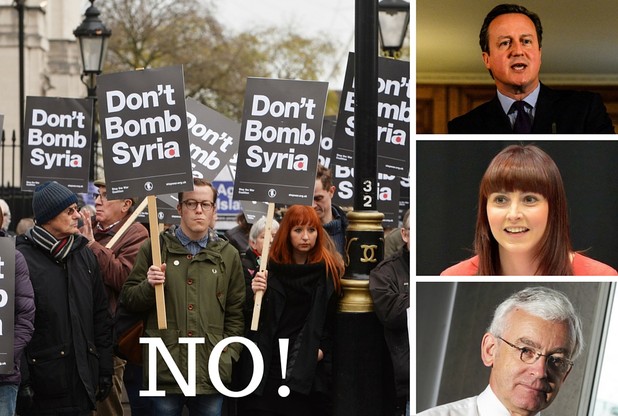British parliament likely to vote for Syria air strikes
The British Parliament is set to decide whether to take more aggressive action against Islamic State extremists by launching airstrikes inside Syria.
The Liberal Democrats, who have eight MPs, pledged their support for air strikes, while Labour leader Jeremy Corbyn gave his ministers a “free vote” following pressure from his shadow cabinet.
But anger over local media reports that Cameron told Conservative MPs at a private meeting late on Tuesday not to vote with Corbyn “and a bunch of terrorist sympathisers” could harden opposition.
Cameron has long wanted to target IS in Syria, but had been unsure of getting majority support in the House of Commons until now.
The prime minister started the debate by saying the threat from IS is “very real”, reminding MPs the group has murdered British hostages, killed Britons on a beach in Tunisia and plotted attacks on British soil.
“Think of the complications and the implications of what we are doing and please cast your vote against supporting this government’s military endeavours in Syria”.
Opposition Labor Party leader Jeremy Corbyn voiced strong opposition despite dozens from his own party backing the government’s mandate for airstrikes.
DUP MP Nigel Dodds said the Troubles had taught us that “no other approach can be brought to terrorism”.
“He said the United Kingdom faces “‘a fundamental threat to our security” and posed the question, “Do we work with our allies to degrade and destruct this threat… or do we sit back and wait for them to attack us?”
“It is in the national interest, it is the right thing to do, we will be acting with our allies, we will be careful and responsible as we do so, but in my view it s the right thing to do this to keep our country safe”, he said.
Calling the vote is a high-stakes gamble for Prime Minister David Cameron, who lost a House of Commons vote in 2013 over authorizing airstrikes against Bashar al-Assad’s regime.
If support is gained from members from all parties, subsequent air strikes will target ISIL headquarters in Raqqa in Syria, where ISIL plans and orchestrates its activities.
Labour MP John Mann intervened on Corbyn as the Labour leader spoke to demand threats against pro-strike MPs stop.
A YouGov opinion poll last week found that 59 percent approved of Britain joining air strikes in Syria, compared to 20 percent who disapproved, but a survey published on Wednesday showed only 48 percent approved with 31 percent against.
Indeed, after repeating the 70,000 moderate forces figure again, Mr Cameron acknowledged himself that these were not “ideal partners” but could in some form be useful and play a role in the future of Syria.
He said the UK’s involvement was “unlikely to make a huge difference” militarily and would lead to “mission creep” which could end with British troops on the ground in Syria – something which is explicitly ruled out in the Government’s motion.








